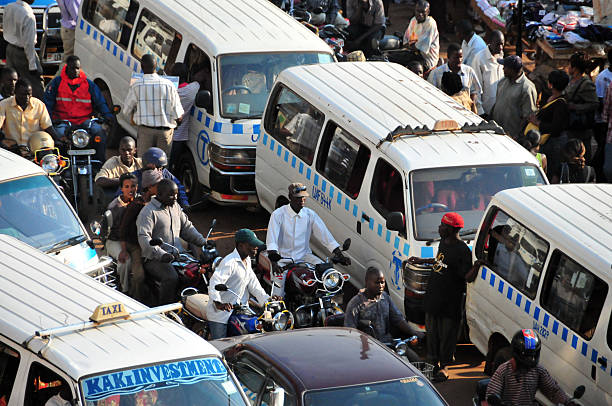Last year, road accidents in Uganda injured 25,000 people and claimed 5000 lives, making them the leading non-disease cause of death. To curb this crisis, the government has introduced the Electronic Penalty System (EPS), an automated system that detects traffic violations and issues fines. The penalties range from UGX 20,000 to UGX 600,000 depending on the severity of the offense. As a lifelong pedestrian in Kampala, I’ve dodged enough near-misses to see the EPS as a relief. But for motorists, it is a source of frustration. The 30 km/h speed limit feels painfully slow—trust me, I’ve been on a bus crawling at that pace, and it’s maddening. Add Kampala’s chaotic traffic and contradictory instructions from traffic officers, and drivers are caught in a dilemma: obey the officer or the system? Either way, fines pile up.
This feels unfair, especially for Uganda’s low-income drivers. But it’s no surprise—human systems always fall short. So, what do we do when they let us down?
The EPS and Human Imperfection
The EPS, like all human systems, reflect our imperfections. It’s not that God should manage our traffic—that’s absurd! But since the day we were kicked out of Eden, we have lived in a fallen world. Our efforts to fix it, like the EPS, often create new problems. Even if we solved our traffic problems (and that’s a big if), we’d still face corruption, broken families, or natural disasters. No human system escapes our fallen nature. ‘Am I suggesting that we should give up? No. God still calls us to be fruitful, multiply and assert our dominion over the earth (Gen. 1:28; 9:1-2), making the most of our broken world. But we must accept its limits. Is there any hope for us?
God’s Perfect Justice
For the Christian, hope abounds. Human systems like the EPS may fail, but God never does. “Righteousness and justice are the foundation of [his] throne; steadfast love and faithfulness go before [him]” (Psalm 89:14). Unlike our broken and unfair human systems, God’s justice and ways are perfect. This means both good news and bad news. Let’s start with the good news: You and I can be confident that one day, God will right every wrong. He will punish tyrants, corrupt judges, thieves, and murderers. The Bible says, “God has fixed a day on which he will judge the world in righteousness by a man whom he has appointed; and of this he has given assurance to all by raising him from the dead” (Acts 17:31). One day, you and I, together with every king, president, general, judge and police officer will stand before Jesus and be judged according to our deeds.
The bad news? You’re not innocent. Even as you point a finger at government, remember that three fingers are already pointing at you. You, my friend, have sinned against God in your deeds, thoughts and desires. As Paul warns: “…you have no excuse, O man, everyone of you who judges. For in passing judgement on another you condemn yourself, because you, the judge, practice the very same things” (Romans 2:1). You and I are guilty of the same things we condemn others for. Paul further writes that we have all sinned and fallen short of God’s glory, that there is none good or righteous among us, not even one (Romans 3:10-12, 23). We are all deserving of hell fire. Is that the end?
Trusting Jesus for Mercy
Thankfully, no. God’s love offers a way out: “For God so loved the world that he gave his only Son, that whoever believes in him should not perish but have eternal life” (John 3:16). Thanks to God’s love for us, a way of salvation is open through Jesus Christ. You and I can have confidence that if we believe in him, we will never perish but shall have everlasting life. Notice that it says, “whoever believes”—not some, few or even most. It is “whoever”—everybody! There are no exceptions. Jesus also said, “I am the resurrection and the life. Whoever believes in me, though he dies, yet shall live” (John 11:25). If you haven’t trusted Jesus, do it today. No special prayer is needed. Just believe, and you’ll be saved (Acts 16:31).
Living our Your Faith
If you believe, ask yourself: Does my life reflect someone who has been saved from the enslavement of sin? If it doesn’t, you may well have never believed. James reminds us that faith without works is dead (James 2:17). It doesn’t matter how vocal you are about it. While we are not saved by our works, true genuine faith in Christ is always followed by works (Ephesians 2:8-10).
Also, are you sharing the gospel? If you had a cure for cancer but kept it secret, would that be loving? No. True love for your neighbor will push you to share the eternally life-altering message of the gospel with them. You won’t watch on in silence as millions upon millions are eternally lost. Share the good news.
Conclusion: Hope Beyond the Present
The EPS reminds us that human systems fail, but God’s justice and mercy never do. Trust Jesus to cover your “fines” and live boldly for Him. If you’re unsure about faith, reach out via my contact form or join us at Petra Reformed Baptist Church. Let’s proclaim Christ’s hope across Uganda and beyond!



